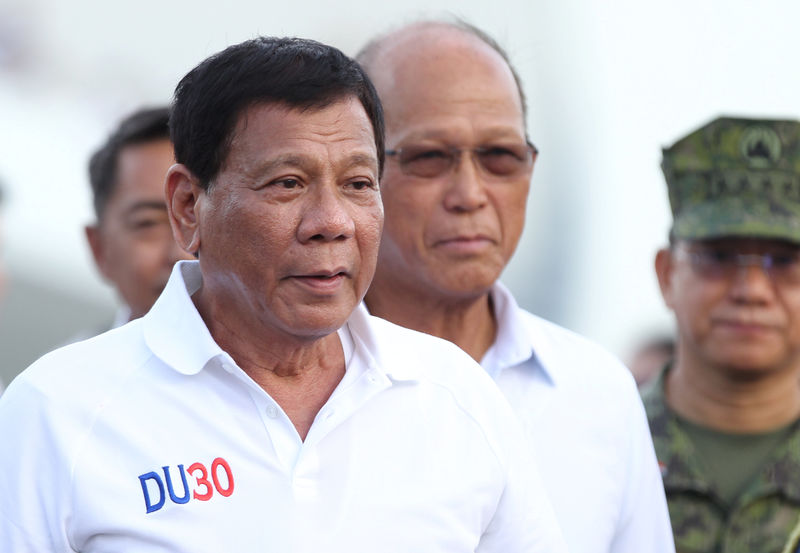MANILA (Reuters) - U.S. President Donald Trump was aware of the criticism Philippine counterpart Rodrigo Duterte had received over his controversial war on drugs, but praised him for doing a "great job" when they spoke, Duterte's spokesman said on Tuesday.
Trump's invitation to the Philippine leader to visit him at the White House unleashed a storm of criticism in Washington due to the scale of the bloodshed of Duterte's anti-drugs campaign, which has killed thousands of people over the past 10 months.
The White House defended the invitation made during a phone call on Saturday, acknowledging that though human rights were an important issue, Washington needed allies in Asia to address the global threat of North Korea's development of nuclear weapons.
Duterte's spokesman, Ernesto Abella, said Trump was very much aware of the criticism of Duterte, but had praised him for "doing a great job considering the weight and the enormity of the conditions in the Philippines".
It was not clear if Abella was quoting Trump as praising the anti-drugs campaign specifically, or Duterte's performance as president in general.
"I'm sure he's aware of all these considerations," Abella added, referring to Trump.
"However, from his point of view, it seems like the president of the Philippines is doing a sensible job."
Duterte has received widespread condemnation in the West for failure to curtail the killings and address activists' allegations of systematic, state-sponsored murders by police of drug users and dealers, which the authorities reject.
Duterte has also received praise, however, for his handling of one of the world's fastest-growing economies, and a policy agenda geared towards supporting farmers and small businesses, developing infrastructure and fighting poverty in a country where a fifth of the people live on less than $1 a day.
But critics said Trump had gone a step too far with an invitation that was tantamount to an endorsement of Duterte's bloody approach to law and order.
Duterte is also known for his foul language in lambasting the United States on a near-daily basis for what he calls a history of hypocrisy. He last week called the New York Times "assholes" for its coverage of his anti-drugs campaign.
Ben Cardin, a ranking member of the foreign relations committee of the U.S. Senate, said he was "deeply disturbed" by the invitation, and said he would this week introduce bipartisan legislation to send a warning to Duterte, which would include a ban on arms sales to the Philippine police.
"This is a man who has boasted publicly about killing his own citizens," Cardin said in a statement.
"Ignoring human rights will not advance U.S. interests in the Philippines or any place else. Just the opposite."
Abella also reiterated that Duterte had acknowledged Trump's invitation, but had not accepted it.

Although Trump gave no timeframe for the invitation, Duterte on Monday told reporters he could not commit because he might be "tied up" with other overseas trips.